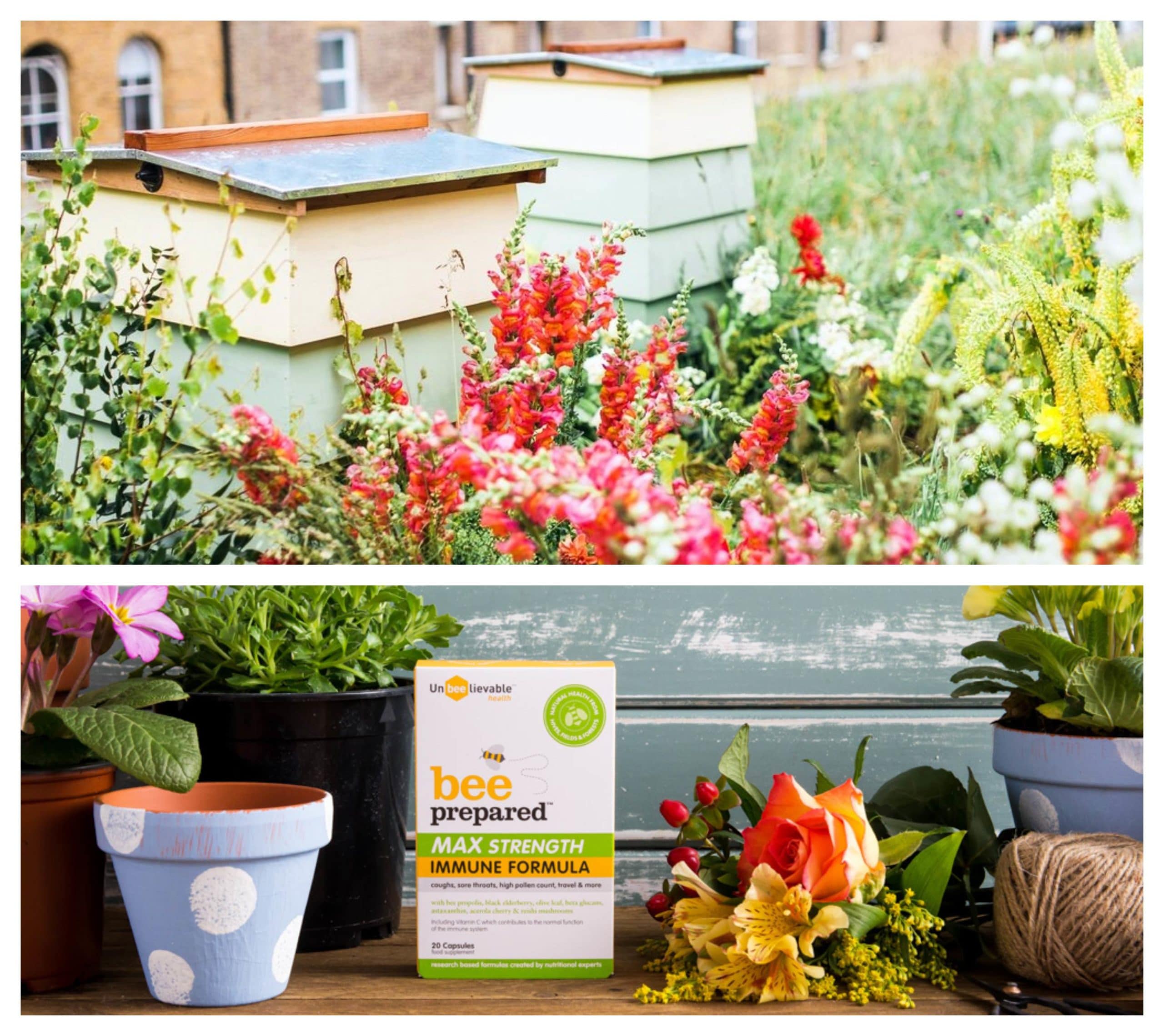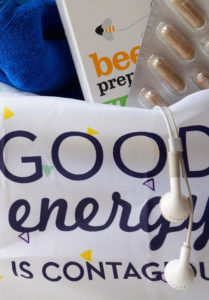
10 Mar Nutritionist’s Tips to Help Reduce Hay Fever Symptoms, Naturally
What causes hay fever and how can you help reduce the symptoms? Hay fever is the result of the immune cells responding to harmless allergens and stimuli [i]. The best way to avoid this hyper-histamine reaction is to balance and modulate the immune system[ii] through healthy eating & nutritional supplementation and to try to minimise the pollen that enters the system as well as making some lifestyle changes.
Reducing exposure[iii]:
- Use natural barrier balms such as HAYMAX to stop pollens from entering the nose
- Change clothing and shower when returning from being outdoors
- Change pillow cases often as pollen clings to the hair and face
- Wear a mask or wrap around sunglasses
- Close windows and use air filters
Foods to eat & avoid:
1) Increase natural antihistamine and anti-inflammatory foods and herbs:
- Vitamin C helps reduce reduce symptoms of allergic rhinitis[iv]. Increase intake of citrus fruit, berries, broccoli, Brussels sprouts, cherries and kale. Pineapple is also a good choice as it contains the enzyme bromelain which helps reduce inflammation.
- Quercetin is a flavonoid which balances immune function and can stabilise immune cells that produce histamine[v]. It can be found in elderberries, blackberries, red grapes, red apples, and onion.
- Stinging Nettle extract or tea may be helpful in reducing allergic rhinitis symptoms[vi].
2) Eat local honey and bee pollen.
- A teaspoon or so of local honey each day may aid in gradual pollen desensitization as will taking bee pollen (start off taking small amounts & build up)
3) Reduce histamine containing foods which may exacerbate symptoms [vii]:
- Processed meats
- Alcohol
- Fermented foods
- Foods containing preservatives and additives
- Cheese and other cow’s milk products
Supplements:
The therapeutic aim of taking supplements for hay fever should be to modulate immune function and to reduce histamine response and inflammation. Bee Prepared immune formulas are my supplements of choice as they contain ingredients which effectively support immune function and have natural antihistamine and anti-inflammatory properties. Bee Prepared Daily Defence, combines propolis[viii], elderberry, olive leaf, acerola cherry & beta glucans[ix] & Bee Prepared Max is a more concentrated version and also includes astaxanthin[x] and reishi mushroom[xi]. I recommended the Daily for everyday use & the MAX for when pollen count is high or suffering increases. Capsule contents may be opened into juices and smoothies if you don’t like swallowing pills. Bee prepared is suitable for most ages as well.
The gut also plays an important role and balancing the gut flora also aids in supporting long term immune health and reduction of allergies[xii] so adding a good quality probiotic such as Optibac can also help.
By Erin McCann Galvin NT mBANT Dip ION Nutrition Therapist
More tips and ideas here.
[i] Nauta, AJ., et al. 2008. Mechanism of allergy and asthma. European Journal of Pharmacology. May, 13:585(2-3), pp.354-60.
[ii] Tsitoura, DC. And Tassios, Y., 2006. Immunomodulation: the future cure for allergic diseases. Annals of the New York Academy of Science. November 1088, pp.100-15.
[iii] Mayo Clinic, 2012. Seasonal Allergies: Nip them in the bud. [online] July 13. Available < http://www.mayoclinic.com/health/springtime-allergies/AA00060> [Accessed 11 March 2013]
[iv] Bucca, C., et al., 1990. Effect of Vitamin C on histamine bronchial responsiveness of patiencts with allergic rhinitis. Annals of Allergy. Oct 65(4), pp. 311-4.
[v] Chirumbolo, S., 2010. The role of quercetin, flavonols and flavones in modulating inflammatory cell function. Inflammatory Allergy Drug Targets. Sep 9(4), pp.263-85.
[vi] Roschek, B., et al., 2009. Nettle extract (Urtica dioica) affects key receptors and enzymes associated with allergic rhinitis. Phytotherapy Research, Jul 23(7), pp. 920 – 6.
[vii] Allergy UK, 2012. Histamine Intollerance. [online] October. Available at < http://www.allergyuk.org/common-food-intolerances/histamine-intolerance> [Accessed 11 March 2013]
[viii] Bachiega, TF, et al., 2012. The effects of propolis and its isolated compounds on cytokine production by murine macrophages. Phytotherapy Research. September, 26(9), pp. 1308-13.
[ix] Kawashima, S., et al., 2012. B-glucan curdlan induces IL-10-producing CD4 + T cells and inhibits allergic airway inflammation. Journal of Immunology, Dec 15 189(12), pp 5713 – 21.
[x] Jyonochi, H., Zhang, L., and Tomita, Y., 1993. Studies of immunomodulating actions of carotenoids. Astaxanthin enhances in vitro antibody product to T-dependent antigens without facilitating polyclonal B-cell activation. Nutrition and Cancer, 19(3), pp. 269-80.
[xi] Mizutani, N. et al. 2012. Effect of Ganoderma lucindum on pollen induced biphasic nasal blockage in a guniea pig model of allergic rhinitis. Phytotherapy Research, Mar 26(3), pp. 325 – 32.
[xii] De Azeyedo, MS., et al.,2013. Immunotherapy of allergic diseases using probiotics or recombinant probiotics. Journal of Applied Microbiology, Feb 26. Abstract only. Available through: Pub Med.gov – US National Library of Medicine National Institutes of Health website < http://www.ncbi.nlm.nih.gov/pubmed/23437848>




